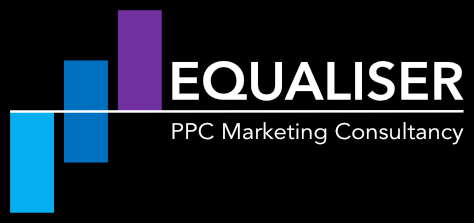Building Smarter Strategy: The Equaliser Playbook
- James Balmforth
- Feb 13
- 3 min read
Most businesses don’t have a PPC problem.
They have a business problem that PPC hasn’t been designed to solve properly.
Too many PPC agencies operate in a tactical vacuum - optimising campaigns, tweaking bids, running AI-driven features - without stepping back to ask:
How does PPC fit into the bigger picture?
What are we trying to solve for the client?
Where can we find commercial growth?
At Equaliser, we’re a PPC marketing consultancy. We love PPC agencies and build up our experience helping clients within the agency structure.
Traditional PPC agencies tend to focus on campaign execution - building and managing accounts, optimising bids, and refining ad copy.
At Equaliser, we take a broader approach.
Instead of focusing solely on clicks and conversions, we look at how PPC supports overall business growth.
Rather than working within fixed PPC structures, we design strategies that adapt and evolve as your business scales.
We don’t just optimise ad performance - we ensure PPC is fully aligned with wider marketing and business objectives.
This is why we moved away from the traditional PPC agency model. Success in PPC isn’t just about what happens inside a Google Ads account - it’s about how PPC connects to your wider marketing, commercial goals, and long-term growth strategy.
The Common PPC Problems Businesses Face
We see the same challenges again and again:
PPC is generating conversions, but they aren’t translating into revenue growth.
Automation is running the account, but there’s no clear strategy behind it.
The competition keeps pushing up costs, but there’s no counter-strategy in place.
The wider marketing plan and PPC strategy don’t align - they’re operating in silos.
Most PPC setups aren’t built to scale - they’re built to spend more to get more.
That’s why we approach things differently.
The Equaliser Approach: Strategy First, Execution Second
Most PPC teams focus on the mechanics - bids, keywords, audience targeting. But without a clear strategic framework, those tactics only take you so far.
That’s why we apply a structured, repeatable approach to every PPC strategy.

The Equaliser Strategy Playbook
Understand the core challenge – PPC performance is often a symptom, not the root issue. We start by identifying the real business problem.
Think broad, think specific – PPC needs to align with the bigger commercial picture while drilling down into high-intent customer behaviour.
Have a plan – AI-driven automation is powerful, but it’s only as effective as the strategy behind it.
Be meticulous – The difference between an average PPC account and a great one is attention to detail and strategic iteration.
Keep the end in mind – PPC isn’t just about short-term wins. It should be built to compound and scale.
Build up progressively – The best PPC strategies aren’t launched and left - they evolve.
Prioritise ruthlessly – Not every opportunity is worth chasing. We focus on what actually moves the needle.
Create better processes – Efficiency is just as important as performance. Sustainable PPC growth comes from reducing waste and improving workflows.
Shape a repeatable model – The best PPC strategies can scale without breaking. We build systems that drive long-term growth, not just quick wins.
Keep the flywheel spinning – PPC should generate its own momentum, continually improving as more data and insights come in.
Why This Matters for Your Marketing
A lot of agencies say they’re data-driven or performance-focused. Honestly, that should be the bare minimum.
What really matters is whether your PPC strategy is designed to drive sustainable, compounding business growth.
At Equaliser, we don’t just manage PPC campaigns - we build PPC strategies that act as a growth engine for your business.
If your PPC feels reactive, or if you’re struggling to connect it to business results that actually matter, it might be time to rethink the strategy.

Comments